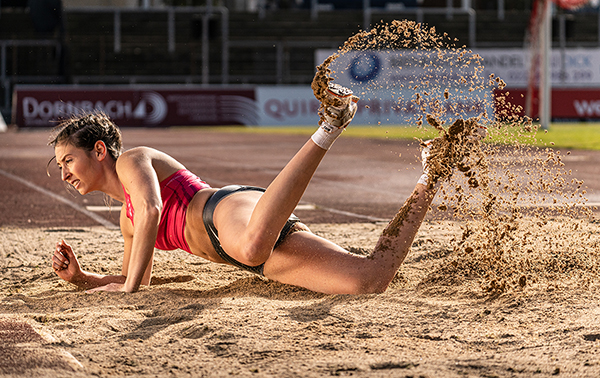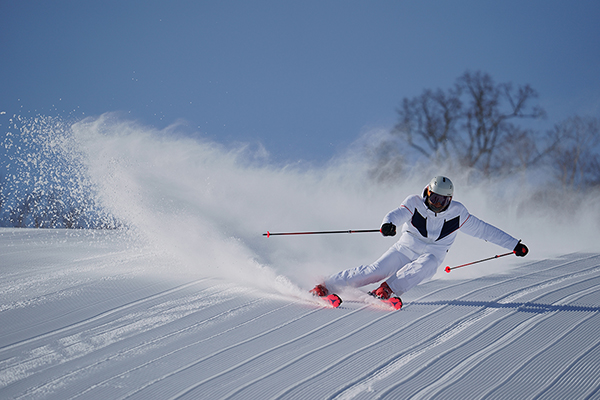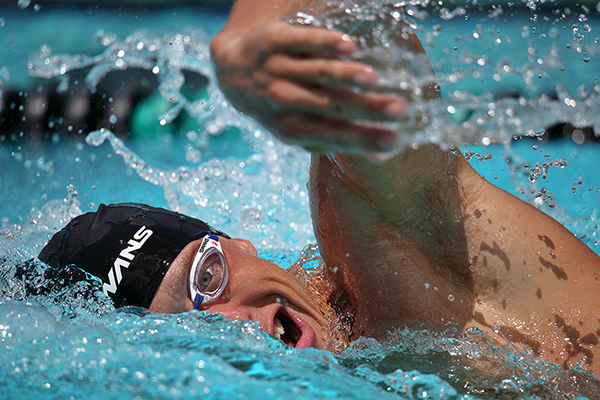Tamron Blogs
More Photo Tips | Video Gallery | Photo Gallery | Enewsletter sign-up
Sports Photography using Tamron Lenses
From full-contact competitions like football and hockey to more laid-back events like golf and tennis, sports are an immensely popular and important part of our society. Sports photography captures the essence, intensity, and energy of these competitions, freezing the action in moments of triumph, defeat, grit, exhaustion, and more. Many sports photographs have become iconic and recognizable even by those who have little to no connection to the sport. Think of the picture of boxing champ Muhammed Ali standing over a knocked-out Sonny Liston, Roger Bannister crossing the finish line on the world’s first sub-4-minute mile, and the raised, black-gloved fists of American sprinters Tommie Smith and John Carlos at the 1968 Olympics. With a Tamron 150-500mm or Tamron 150-600mm lens and a good understanding of what it takes to take great sports photographs, you can capture great moments just like these.
Whether you’re an amateur photographer just looking to capture action shots for your child’s high school team or are hoping to one day have your shots published in Sports Illustrated, you should check out these tips and invest in a great lens like the Tamron 150-500mm or Tamron 150-600mm to improve your craft.

Click image to view larger
Sports photography tips
The prep for a great sports photograph happens before the event begins. Before even arriving at the venue to set up your equipment, take some time to think about the sport you’ll be photographing. The hardest part of sports photography is often anticipating the action and being in the right spot to take a picture of it. If you’re familiar with the sport, then you’ll know the best places you should be to capture the action, and you’ll have less to think about in the moment. And with a Tamron 150-500mm or Tamron 150-600mm lens, you’ll have the perfect equipment to nail the shot.
Your prep work should also include finding out the kind of lighting you can expect at the stadium, arena, gym, or field you’ll be photographing at. Knowing the lighting conditions will give you the opportunity to play with your settings beforehand, so you aren’t fumbling with it in the moment and end up missing the perfect shot.
The more familiar you get with the sport and the venues, the better your photographs will turn out. This familiarity only comes with experience, so be patient and don’t get easily deterred.
Best camera settings for sports photography
Because your subjects will almost always be in motion, the camera settings you’ll have to worry about the most with sports photography are shutter speed, aperture, and ISO. Each is crucial to ending up with images that are clear, crisp, and properly exposed.

Click image to view larger
Shutter speed describes the length of time a camera’s sensor is exposed to light. A slow shutter speed results in an image with high exposure and more blur, while a faster shutter speed results in a sharper, more detailed image, essentially freezing a moment in time. For sports photography, you should be shooting at a fast shutter speed, somewhere around 1/1000 – 1/2000.
However, because the camera sensor is only exposed to light for a fraction of a second, you’ll need to find another way to ensure the image gets the proper amount of exposure. This is achieved by widening the aperture, so enough light is let in. Both the Tamron 150-500mm and Tamron 150-600mm lenses have a very wide aperture range, so you can always get a well-lit photo, no matter the lighting conditions you’re shooting in.

Click image to view larger
ISO also plays a role in ensuring your photos end up properly exposed. Along with a wide aperture, increasing ISO values will also help you in dark situations where fast shutter speeds are necessary.
Want to learn more about how the Tamron 150-600mm and Tamron 150-500mm lenses can help your sports photography efforts? Contact the experts at Tamron today!
More Photo Tips | Watch Videos | Learn More About Tamron Lenses | Photo Gallery